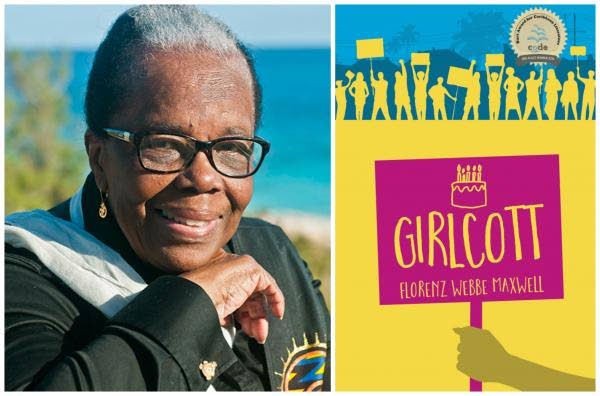Girlcott addresses prejudice, social awareness

Debbie Jacob writes a weekly column for the Newsday
I made no effort to contain my excitement when I learned that Girlcott by Florenz Webbe Maxwell had earned a prize as the second place winner for the 2016 Burt Awards. This noteworthy novel, representing the genre of historical fiction, had made my list of top four Young Adult (YA) novels when I served as a head judge for the Burt Awards in 2015.
As a librarian, I know what many adults don’t seem to realise: children and teenagers love historical fiction. Florenz Webbe Maxwell’s novel about a 1959 boycott of Bermuda cinemas to protest racial segregation on the island does an admirable job of crossing cultural boundaries to reach a YA audience with important messages about prejudice and social awareness. Girlcott reminds readers that children were crucial supporters of the Civil Rights movement.
In Girlcott, Desma Johnson must face the growing tension on her island as she prepares for her 16th birthday party. Desma’s ideal life, which revolves around school, her family and her dreams for future success, suddenly becomes threatened with the looming cinema boycott. As Desma’s awareness of the prejudice grows, she must make decisions about whether she will ignore social injustice to blindly continue with her carefree life. If she joins the struggle, she will have to make personal sacrifices that require her to stand up to the social structure of her country.
Readers will be reminded as they read Girlcott, that good historical novels document an historical event while allowing readers to imagine how those envents affected, challenged or changed ordinary people whose stories are not present in history books. Girlcott accomplishes this lofty feat. Most importantly the novel shows how teenagers, represented by Desma, develop a social conscience.
Desma dreams of becoming an actuary, but she must weigh her dreams against the pressures of society when she is offered a glorified babysitting job by Mrs Wallace, who represents upper class Bermudan society, which is content with the prejudicial hierarchy of society.
Desma’s decision about which direction to go is not an easy one. A job would bring some semblance of security and the Wallaces would offer some sense of adventure because they have promised to take Desma to the US. But Desma dreams of more for her life. She wants to be educated and independent. The Wallace family ridicule her for those dreams.
Webbe Maxwell uses dialogue to advance the plot and develop characters while exposing the tension and conflicts of the novel, which sometimes build to a chilling crescendo. Credible and effective dialogue propel the novel forward, adding to both the tension and the excitement.
“You’ll never be an actuary,” Mr Wallace tells Demsa. “My wife is right about that. You’re coloured and you’re a girl. I don’t’ know of any coloured men in that field let alone coloured women.”
Because Desma is fair-minded, she sees parallels between her father’s struggle and Mr Wallace – even though they are not considered to be on the same socio-economic level. “My father had to work hard just like you,” she says to Mr Wallace. He is horrified by the comparison.
There is no doubt that Girlcott is an important addition to the Canon of Caribbean YA literature. Even adults will enjoy and appreciate this little known Civil Rights story which crosses many boundaries to show how an event in Bermuda can teach us all an invaluable lesson about fighting injustice.


Comments
"Girlcott addresses prejudice, social awareness"